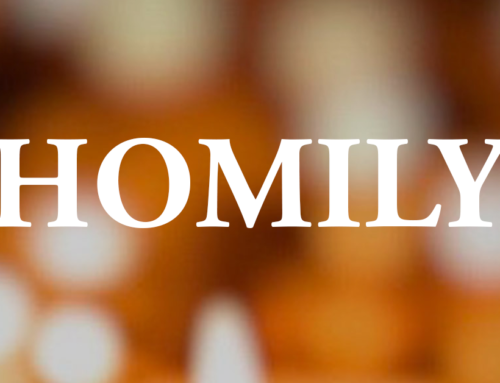“Tribalism and the Good Samaritan”
When a tornado strikes a town, who comes to help clean up? Everybody. The guy in the MAGA hat, the woman in the Black Lives Matter t-shirt, the teenager who loves to hunt, the animal rights activist. Costumes and performance signaling fall away as shards of rubble are handed down the line, tree branches are cleared, as the cracked wedding picture is handed to the weeping grandmother. Who pulled the puppy out from under the collapsed porch? Oh, that guy. That guy who was yelling at the school board meeting last week. Who was the woman he embraced as he set the puppy in her arms? That woman, the one who was protesting censorship in the school library.
The Good Samaritan. So familiar is this story that 2,000 years later, those who have never stepped foot in a church use the term as a symbol for charity, compassion, and good works.
But the story is deeper than that. For as much as it is a story of charity, it is also about tribalism. The significance of the Good Samaritan is that he was a Samaritan — not just a member of a different sect but a member of a reviled sect. The significance of the story is that he was good. He was the helper, not the victim. If he’d been the one beaten, and a kindly person had ministered to him, those listening to Jesus would have paused and nodded and considered the value of helping a poor lost soul as a step toward inheriting eternal life.
Instead, the person doing the ministering was the “other.” And I imagine that as Jesus spoke, a shockwave ricocheted through the crowd. A Samaritan? Jesus was undoing five hundred years of assumptions – assumptions that dated all the way back to the end of the long Babylonian captivity, when those returning to Judea discovered that those left behind to care for the elderly had intermarried with the Samaritans to the north. When they offered to help the Judeans rebuild the temple in Jerusalem, they were turned away and scorned. Why? Because they had weakened the bloodline — considered a profound sacrilege by the powers that be. They weren’t pure enough. They had left the fold. And for that, they were forever reviled.
Five hundred years is a long time — 500 years ago, the King of England was Henry VIII. The deep fissures in our nation haven’t gone on for 500 years, but they are as intense as those in this Gospel story — be it on cultural, political, or economic issues or the fundamentals of truth. We disagree on some things to the very foundations of our souls, to the point of self-definition.
Look around you. Listen to the noise. We are at an inflection point. Wounds are festering. Rage is exploding. People are afraid. They, we, all of us have been beaten up, are lying on the road, sheathed in our separate identities, robbed of our common humanity.
Justice, progress, however you define it, comes not with the kind of righteous anger that fosters suspicion and hatred of the “other” but with compassion and a decency that seeks out common bonds. We know where tribalism can lead, the evil it brings, and those dark powers who profit from it — we have seen the Hitlers of the world whip it up and exploit it. We have witnessed the physical violence, seen the emotional violence done to those who leave the fold and those who were never in it.
The gun shots ring out from the rooftop, and in the utter chaos of the shredded parade, a man hands his toddler for protection to a woman he’s never met, as he races back into the crowd to find his wounded wife. He doesn’t know the woman’s name. He doesn’t know her tribe. Huddled under a bench, humbled by the trust placed in her, the woman rolls over, sheltering the child with her own body against the flying bullets. Others run back into the fray to help the fallen; strangers become neighbors. And the shooter? The shooter, with his elaborate and unwavering distrust of all humanity, is alone, blind to the goodness in others. Blind to his own goodness. His own humanity.
What is the key to eternal life, asks the lawyer. Love your God. Love your neighbor, Jesus responds. Who is my neighbor, the lawyer asks. Everyone, comes the answer. Everyone.
Let us take a moment now to bow our heads and say a silent prayer for all those with whom we disagree so deeply as to fail to see them as neighbors, or to fail to see them at all.
Lord, help us not only to be Good Samaritans but to recognize the Good Samaritans across the great divide. Open our ears to hear their stories, our eyes to see their humanity, our hearts to witness you in them. Amen.
–Penny Duffy
PDF: Homily for Pentecost 5 (Proper 10C)
Written by Penny Duffy
July 10, 2022


